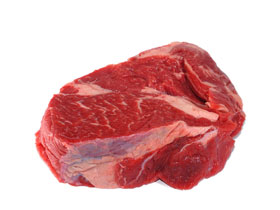Carntine deficiency can cause fatigue, depression, heart problems, weakness, hypoglycemia, fat accumulation, heart disease, angina and a host of other ailments. This is because it is essential to the chemistry of energy, and nothing in the body works without energy. Carnitine supplementation has a number of beneficial effects and very few side effects.
Carnitine is needed to move fuel sources into cells, and to move waste products out of cells. Your muscles, heart and brain contain the highest levels, since they use the most energy. This is also why Carnitine supplementation can help with muscle weakness, fatigue and an inability to reach peak exercise goals and to recover more quickly from exercise. Carnitine also increases HDL (the good cholesterol).
Carnitine can improve cardiac arrhythmia, congestive heart failure and cardiomyopathy, and can help you recover more quickly from a heart attack or bypass surgery. Carnitine has been shown to decrease the severity of a heart attack and to improve exercise tolerance, including walking distance, in those who suffer from angina and poor circulation. It has also been tied to improved performance of seasoned athletes. It can protect the heart from the toxic effects of chemotherapy known to damage the heart and even cause death from heart damage.
Carnitine's benefits are not limited to muscles. It also has effects in the brain, such as improving memory, attention span, senility, learning disabilities and blood flow. This is because it is can mimic the neurotransmitter acetylcholine. It can increase the body's production of glutathione, which is a key nutrient in the detoxification process. Carnitine also stimulates the production of CoQ10, which enables the heart to pump more efficiently and improves sugar metabolism.
A Carnitine deficiency can cause low sperm motility in some men. It can also be the missing ingredient needed to reverse conditions such as cirrhosis of the liver, memory loss, depression, diabetes, recurrent infections and respiratory distress in infants. A Carnitine deficiency can be made worse by consuming alcohol, fatty foods, or sugar.
Carnitine helps the body metabolize fatty acids. It helps your body use fat by carrying fatty acids into the mitochondria so that the fat can be burned into energy, instead of being stored as fat in your arteries.
Carnitine is a naturally occurring compound present in all tissues. It's manufactured in the body from the amino acids Lysine and Methionine, through a process that involves methylation. Vitamin C, Vitamin B6, Niacin and Iron are also required.
In one study, carnitine supplementation in 20 diabetics resulted in a significant drop in triglycerides, serum lipids and cholesterol, within 10 days. In another study, 18 patients with high triglycerides had significant reductions with 900 mg of Carnitine. Other studies have shown results in just two weeks (Lancet, 1201-2, June 1979). Research in 10 Italian hospitals found that Carnitine improved attention span, long-term memory and verbal ability in Alzheimer's patients (Science News, Nov. 30, 1991, pg 365). They found that carnitine stimulates nerve cells to make new membranes and acetylcholine.

Red meat contains twenty times as much Carnitine as fruits and vegetables, so it's one of the best dietary sources. However, to correct a deficiency or to treat health problems, you will need to supplement. A good source is Acetyl-L-Carnitine (500 mg, 1 to 3 times a day); the acetyl group improves absorption and helps it cross the blood-brain better. Plain L-Carnitine (at the same dose) is also available, and is a less expensive alternative.
To improve endurance and exercise tolerance, consider a 2-week trial with 750mg of Acetyl-L-Carnitine twice a day.
BRANDSI recommend Now Foods Acetyl-L-Carnitine, 500mg capsules. At higher doses, you might prefer a powdered form, such as Primaforce Alcar.
- Abdel-Aziz et. al., Effect of carnitine on blood lipid pattern in diabetic patients. Nutr. Rep. Internat. 29:1071, 1984
- Maebashi et. al., Lipid-lowering effect of carnitine in patients with Type IV hyper-lipoproteinemia, Lancet, 805-807, Oct 14, 1978
- Marconi et. al., Effects of L-carnitine loading on the aerobic and anerobic performance of endurance athletes, Eur. J. Appl. Physiol., 54(2):131-135, 1985